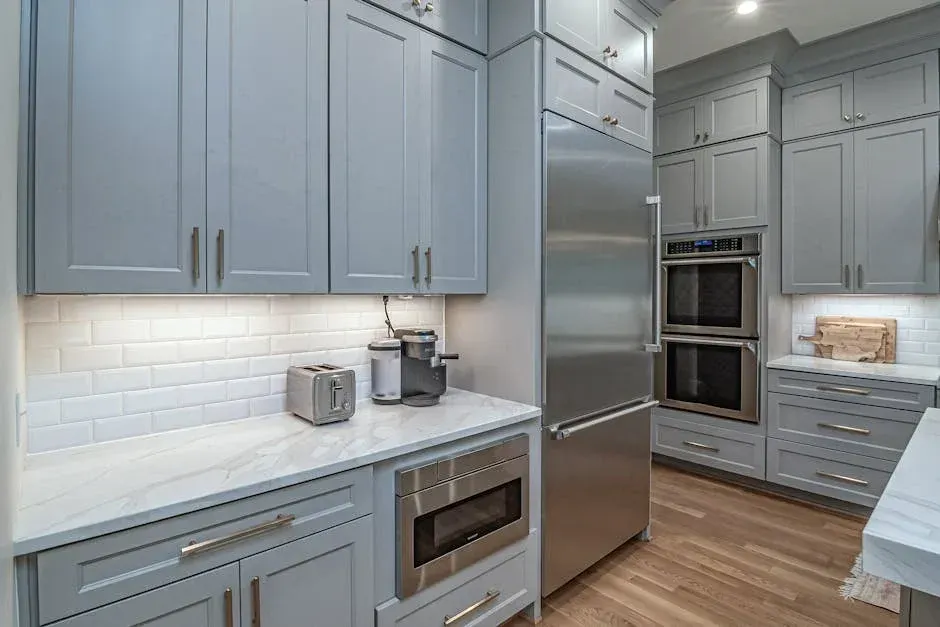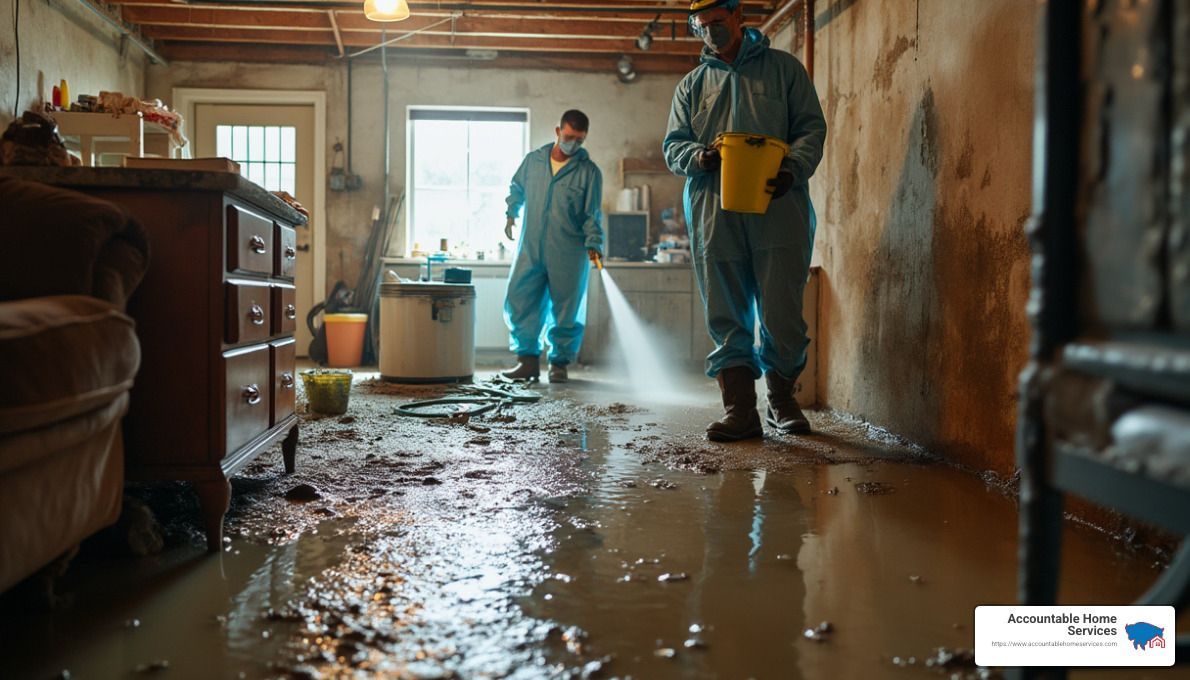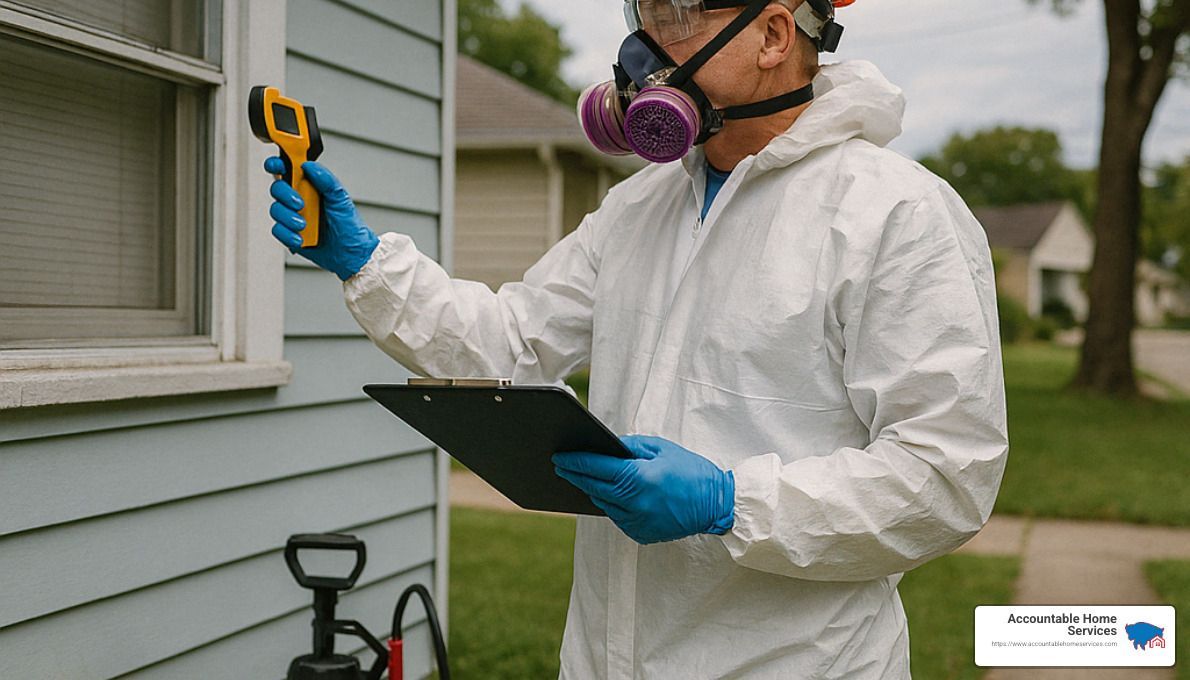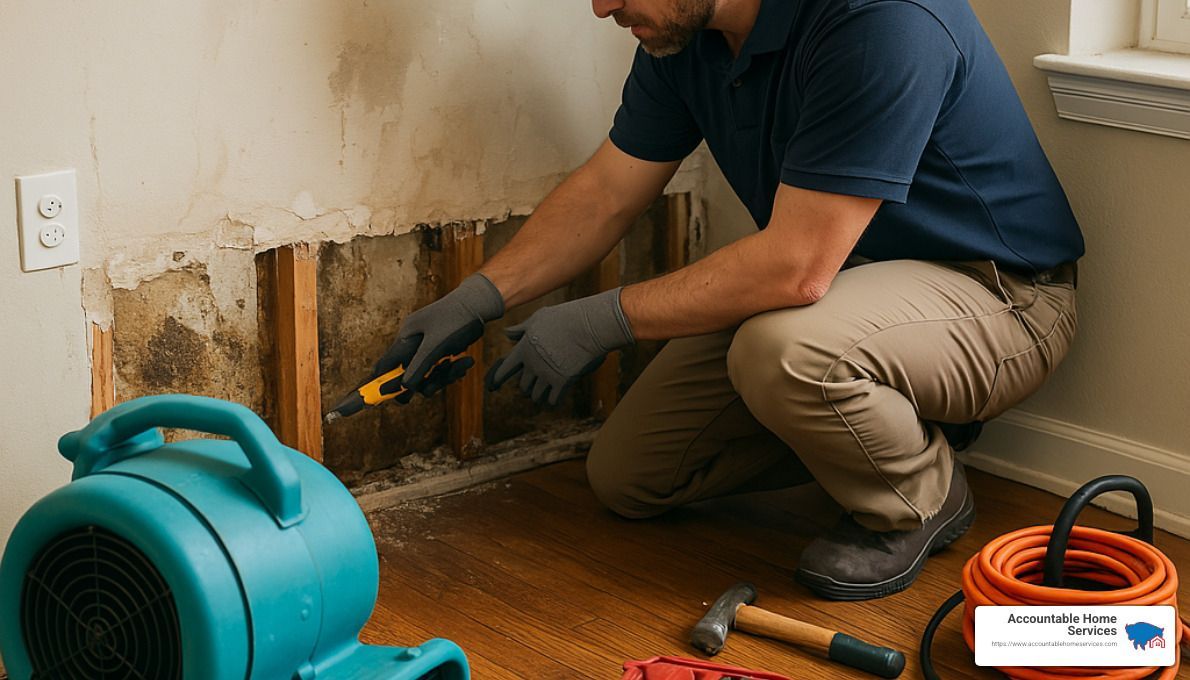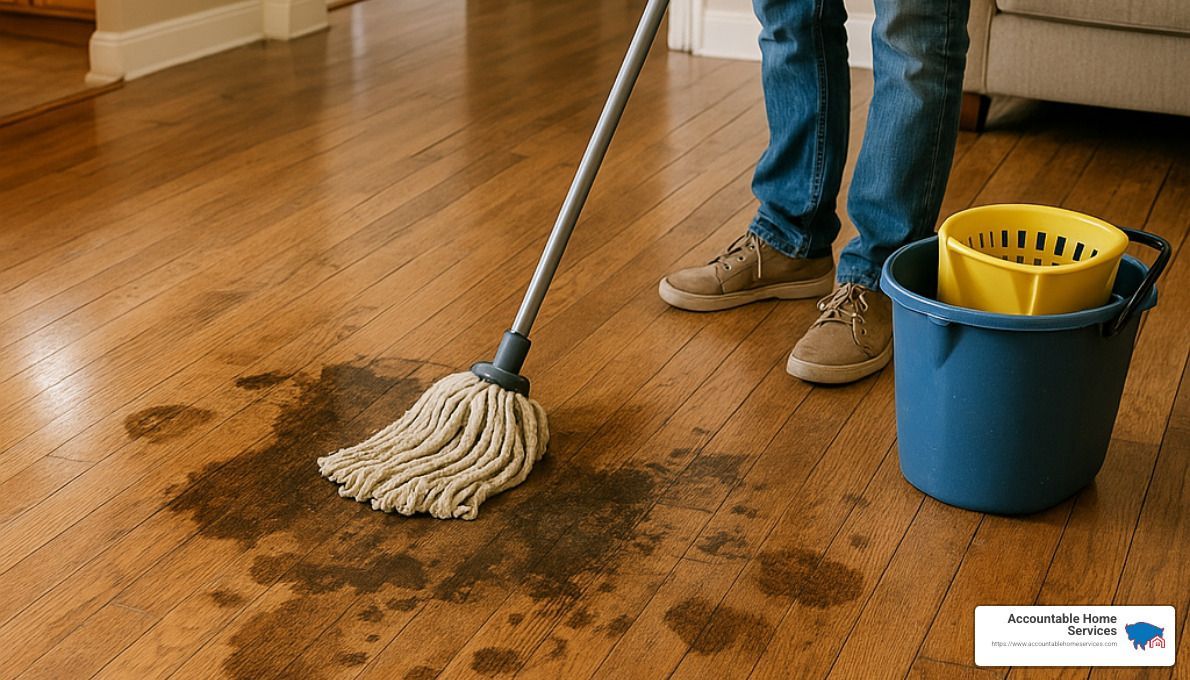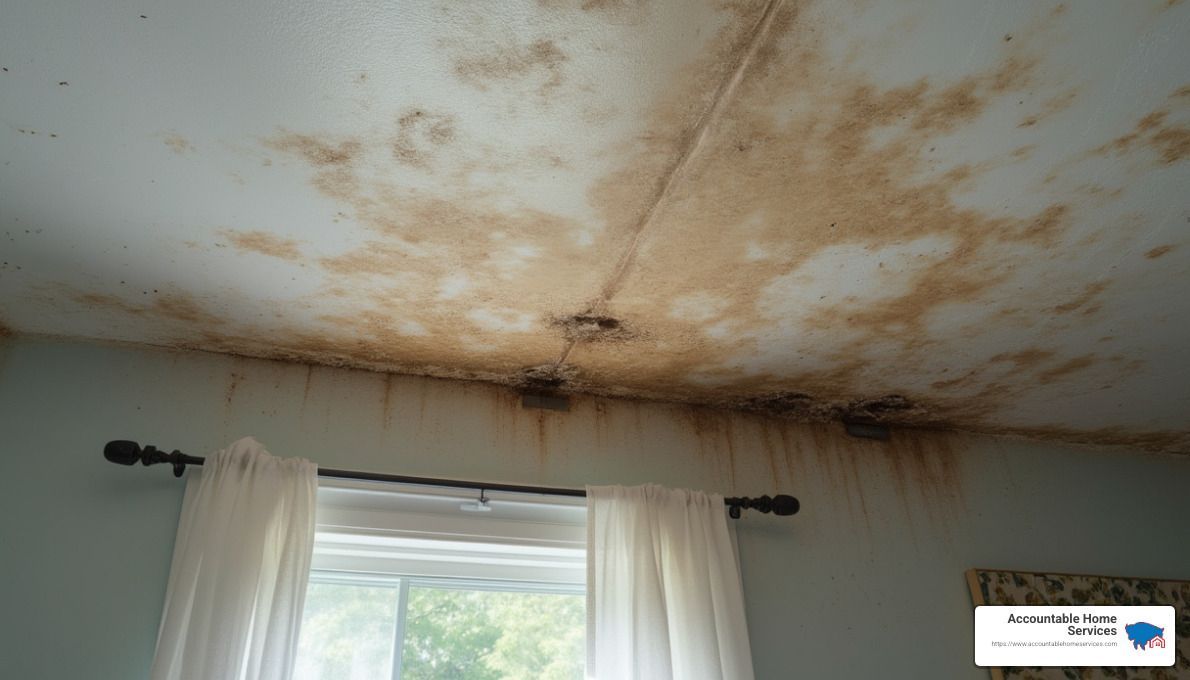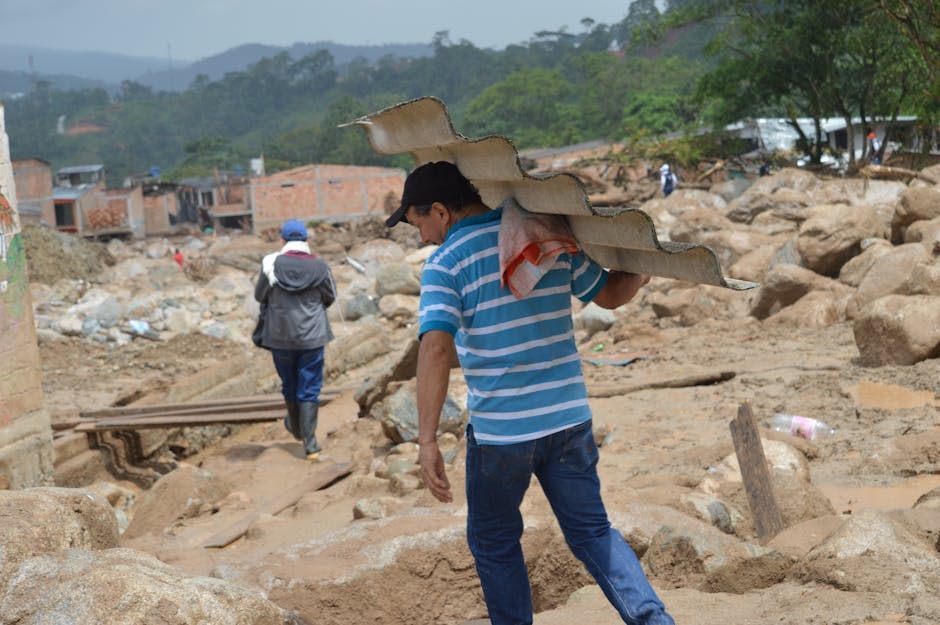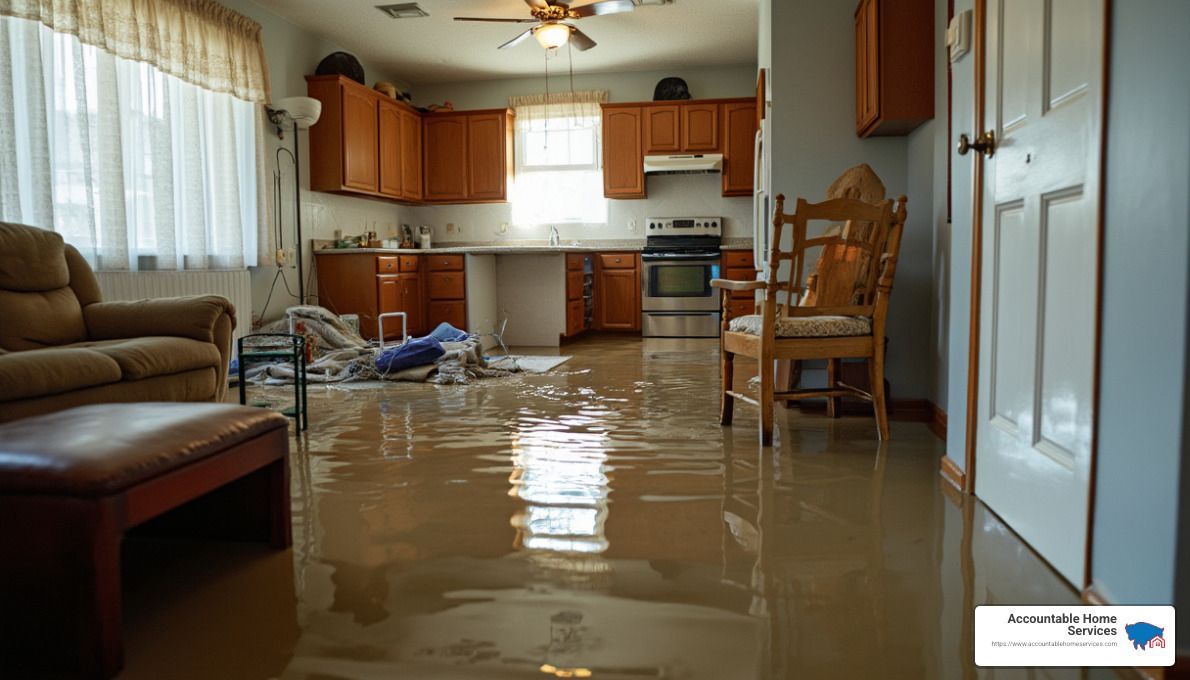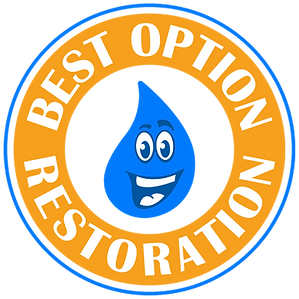Blog
Emergency water damage restoration is a crucial service for homeowners facing unexpected water incidents that threaten their property. Whether from a burst pipe, severe storm, or malfunctioning appliance, water can quickly inundate your home, causing extensive and potentially costly damage. Swift action is essential. Here's a quick guide for immediate pivotal steps:
- Shut off the water: Locate and turn off your water source to prevent further flooding.
- Ensure safety: Turn off electricity to affected areas to avoid electrical hazards.
- Document the damage: Photograph affected areas for insurance purposes.
- Contact professionals: Reach out to certified restoration experts for quick intervention.
- Notify your insurer: Start your insurance claim process promptly.
In the Denver Metro area, dealing with water damage is a common concern for many homeowners, especially during the snowy winter months. The risk of frozen pipes and leaks demands an effective and timely emergency response to minimize damage and restoration costs.
My name is Mike Martinez, proud owner of Accountable Home Services. Growing up in Denver, I've witnessed the importance of addressing emergency water damage restoration efficiently. My company is dedicated to providing swift, reliable service to help restore peace in your home. Let's dive deeper into how you can manage such emergencies effectively.
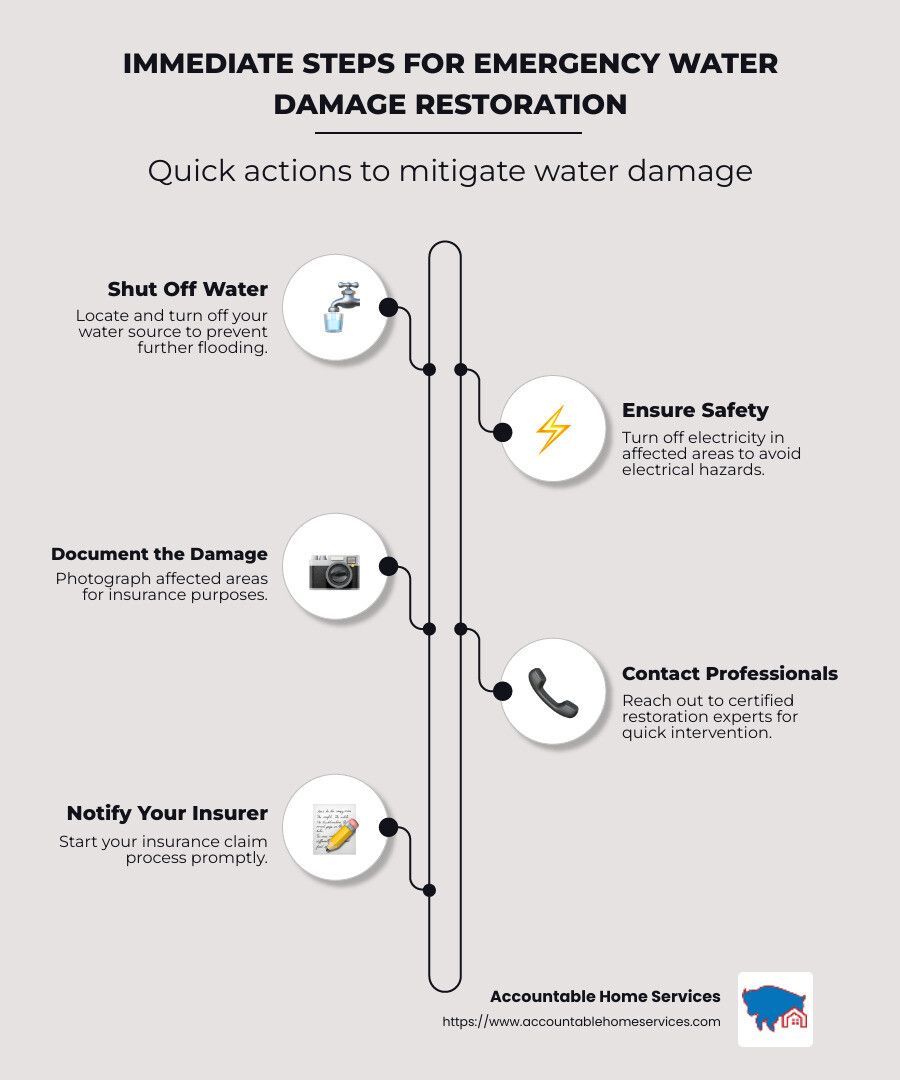
Understanding Water Damage
Water damage can be a sneaky menace, often catching homeowners off guard. Whether it's a burst pipe or a natural disaster, understanding the causes, types, and risks associated with water damage is crucial.
Causes of Water Damage
Water damage can stem from various sources:
- Leaky Pipes: One of the most common culprits, especially in older homes, where wear and tear take their toll.
- Flooding: Heavy rain or snowmelt can overwhelm drainage systems, leading to flooding.
- Appliance Malfunctions: Dishwashers, washing machines, and water heaters can fail, releasing water into your home.
- Roof Leaks: Damaged shingles or flashing can allow water to seep into your attic and walls.
Types of Water Damage
Water damage is categorized into three main types, each with its own level of risk:
- Category 1 - Clean Water: Originates from a sanitary source like a broken water supply line. This water is safe but can still cause significant damage if not addressed quickly.
- Category 2 - Grey Water: Contains some contamination and could cause discomfort or illness. Common sources include washing machine overflows and sump pump failures.
- Category 3 - Black Water: Highly contaminated and poses serious health risks. This includes sewage backups and floodwater from rivers or streams.
Risks of Water Damage
Ignoring water damage can lead to severe consequences:
- Structural Damage: Water can weaken your home's foundation and compromise structural integrity.
- Mold Growth: Mold thrives in damp environments and can spread quickly, posing health risks.
- Electrical Hazards: Water in contact with electrical systems can lead to dangerous situations.
- Financial Burden: Delayed action can increase repair costs significantly, especially if mold remediation or structural repairs are needed.
In the Denver Metro area, the risk of water damage is heightened during snowy months when frozen pipes and roof leaks become more prevalent. Understanding these risks and taking preventive measures can save you from costly repairs and ensure your home remains safe and sound.
Next, we'll explore the Emergency Water Damage Restoration Process, diving into the steps necessary to tackle water damage head-on.
Emergency Water Damage Restoration Process
When water damage strikes, acting fast is crucial. Here's a breakdown of the emergency water damage restoration process to help you understand what to expect.
Water Removal
The first step in tackling water damage is removing the water itself. Specialized equipment like pumps and vacuums are used to extract water swiftly and efficiently. Time is of the essence, as the longer water sits, the more damage it can cause.
- Tools Used: High-powered pumps, wet/dry vacuums
- Goal: Quickly remove standing water to prevent further damage
Drying
Once the water is removed, the drying process begins. High-capacity fans and air movers are deployed to circulate air and speed up evaporation. This step is vital to prevent mold growth and further structural damage.
- Tools Used: Industrial fans, air movers
- Goal: Thoroughly dry all affected areas
Dehumidification
After drying, dehumidification is essential to remove excess moisture from the air. This step ensures that all hidden areas, like behind walls and under floors, are completely dry. Dehumidifiers are strategically placed to maximize efficiency.
- Tools Used: Industrial-grade dehumidifiers
- Goal: Eliminate moisture to prevent mold and mildew
Monitoring
Throughout the process, continuous monitoring is essential. Technicians use moisture meters and thermal imaging cameras to track progress and make necessary adjustments. This ensures that no moisture is left undetected.
- Tools Used: Moisture meters, thermal imaging cameras
- Goal: Verify complete drying and adjust as needed
Repairs
Once everything is dry, repairs can begin. This may involve fixing drywall, replacing flooring, or addressing any structural issues. The goal is to restore your home to its pre-damage condition.
- Tasks Included: Drywall repair, flooring replacement, structural repairs
- Goal: Return your home to its original state
In the Denver Metro area, Accountable Home Services is ready 24/7 to handle your water damage emergencies with expert care and efficiency. Next, we'll discuss the immediate steps you should take after finding water damage in your home.
Immediate Steps to Take After Water Damage
When you find water damage in your home, every second counts. Here’s what you should do immediately to minimize damage and ensure safety:
1. Shut Off the Water
If the water damage is due to a burst pipe or a leak, turn off the main water supply to stop more water from entering your home. This is a crucial first step to prevent further flooding.
- Tip: Know the location of your main water shut-off valve in advance. If you’re unsure, consult with a plumber to help you locate it.
2. Remove Excess Water
Once the water is stopped, it’s time to start removing it. Use mops, towels, or a wet/dry vacuum to soak up as much water as possible.
- Do Not Use: Regular household vacuums, as they are not designed for water and can pose an electrical hazard.
3. Protect Your Belongings
Move any valuables and furniture to a dry area. If possible, place aluminum foil or wooden blocks under furniture legs to prevent further damage from moisture.
- Tip: Take photos of damaged items for insurance purposes. This documentation can be crucial when filing a claim.
4. Safety Precautions
Your safety is the top priority. Never enter a room with standing water if the electricity is still on. Water and electricity are a dangerous combination.
- Action: If safe, turn off the power at your home’s electrical panel. If the panel is in a wet area, call an electrician for assistance.
Additional Precautions
- Avoid Using Electrical Appliances: Don’t use electrical items like TVs or computers that have been in contact with water until they’ve been inspected.
- Don’t Disturb Mold: If you see mold, do not try to clean it yourself. Disturbing mold can release spores into the air, exacerbating the problem.
By taking these steps, you can help limit the damage and prepare your home for professional emergency water damage restoration. Next, we'll explore how to prevent future water damage with some simple but effective measures.
Preventing Future Water Damage
Water damage can be a costly and stressful event, but the good news is, there are several proactive steps you can take to help prevent it. Here are some key measures to consider:
Smart Shut-Off Valves
A smart shut-off valve is a smart investment for any homeowner. These devices automatically detect leaks and shut off your main water supply, preventing extensive damage before it starts. They can be especially useful if a pipe bursts when you're not at home. Installing one can save you from the headache of coming home to a flooded house.
Routine Inspections
Regular inspections are crucial in catching small issues before they become big problems. Routinely check visible pipes for wear, corrosion, or leaks. Examine water supply lines to appliances like washing machines and dishwashers, and replace any that show signs of cracking or wear. These simple checks can prevent leaks that lead to significant water damage.
Gutter Maintenance
Well-maintained gutters and downspouts are vital for directing water away from your home. Clean gutters and downspouts regularly to prevent clogs that can lead to water overflow. Clogged gutters can cause water to pool around your foundation, leading to basement leaks or structural damage.
- Tip: Schedule gutter cleaning at least twice a year, more often if you have many trees near your home.
Sump Pump Checks
If you have a basement, a sump pump is an essential tool for preventing water damage. Test your sump pump periodically to ensure it's working correctly, especially before heavy rain or snowmelt. Consider a model with a battery backup, so it operates even during power outages.
By implementing these preventive measures, you can significantly reduce the risk of water damage in your home. Not only will this protect your property, but it can also save you money and stress in the long run.
Next, we'll answer some frequently asked questions about emergency water damage restoration to further equip you with the knowledge to handle these situations effectively.
Frequently Asked Questions about Emergency Water Damage Restoration
What is the typical cost for water damage restoration?
The cost of emergency water damage restoration can vary widely depending on several factors. The extent of the damage, the type of water involved (clean, gray, or black), and the size of the affected area all play a role in determining the price.
- Minor Water Damage: Typically costs range from $1,000 to $3,000. This might include small leaks or a limited area of damage.
- Moderate Water Damage: Costs can range from $3,000 to $7,000. This level might involve more extensive leaks or partial flooding.
- Severe Water Damage: Restoration can cost $7,000 to $20,000 or more. This includes major flooding or damage over large areas.
Factors like the need for mold remediation, structural repairs, and specialized equipment can also impact costs. It's important to get an assessment from a professional to understand the specific needs of your situation.
Can a house with water damage be repaired?
Yes, a house with water damage can often be repaired, but the process and feasibility depend on the extent of the damage.
- Initial Assessment: Professionals will assess the structural integrity of your home. This includes checking for damage to walls, floors, and the foundation.
- Water Removal and Drying: The first step in the repair process is removing all standing water and thoroughly drying the area. This prevents further damage and mold growth.
- Repair and Restoration: Once dry, repairs can begin. This may involve replacing drywall, flooring, and insulation, as well as addressing any structural concerns.
- Monitoring: Continuous monitoring ensures that all moisture is removed and prevents future issues.
With proper care and professional help, most homes can be restored to their pre-damage condition. However, severe cases might require extensive repairs or rebuilding.
What should I do immediately after water damage?
Taking the right steps immediately after finding water damage can minimize the impact:
- Ensure Safety: First, make sure the area is safe. Turn off electricity if water is near electrical outlets or appliances to prevent shocks.
- Stop the Water Source: If possible and safe, locate and stop the source of the water. This could involve turning off the main water supply.
- Remove Excess Water: Use mops, towels, or a wet/dry vacuum to remove as much water as possible.
- Protect Belongings: Move valuable items and furniture to a dry area. Remove wet rugs or carpets.
- Call a Professional: Contact a water damage restoration company like Accountable Home Services for immediate help. They can provide the expertise and equipment needed to handle the situation effectively.
Taking quick action can help reduce the damage and the costs associated with repairs. Always prioritize safety and seek professional assistance when dealing with water damage.
In the next section, we'll dig into further tips and insights to help you manage water damage efficiently and prevent future issues.
Conclusion
At Accountable Home Services, we're dedicated to being your trusted partner for all your restoration needs in the Denver Metro Area. Our family-owned business understands the stress and urgency that comes with water damage. That's why we offer 24/7 emergency response to ensure we're there when you need us most.
When disaster strikes, time is of the essence. Our team of certified technicians is equipped with the latest technology to swiftly address any water damage situation. From initial assessment to complete restoration, we handle every step with precision and care. We know how crucial it is to act fast to minimize damage and costs, and our professionals are ready to tackle even the most challenging scenarios.
One of the ways we ease the burden for our clients is through direct insurance billing. Dealing with insurance claims can be cumbersome, but our expertise in this area ensures a smooth process. We work directly with your insurance company, documenting all necessary details to help you get the maximum coverage possible.
Water damage can be overwhelming, but you don't have to face it alone. With our commitment to top-quality craftsmanship and transparent communication, we aim to restore not just your home, but also your peace of mind. For reliable, long-lasting solutions, trust Accountable Home Services to get the job done right.
For more information, visit our
Denver service page and learn how we can help protect and improve your home today.

